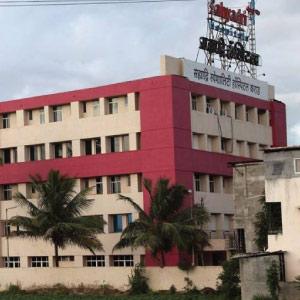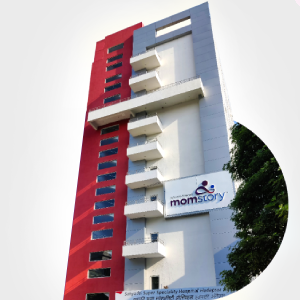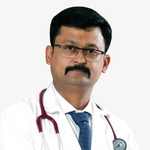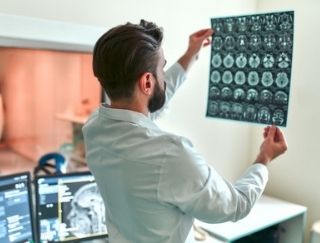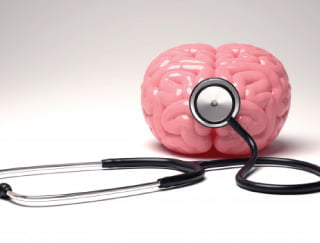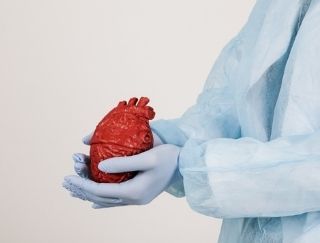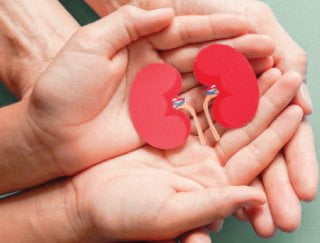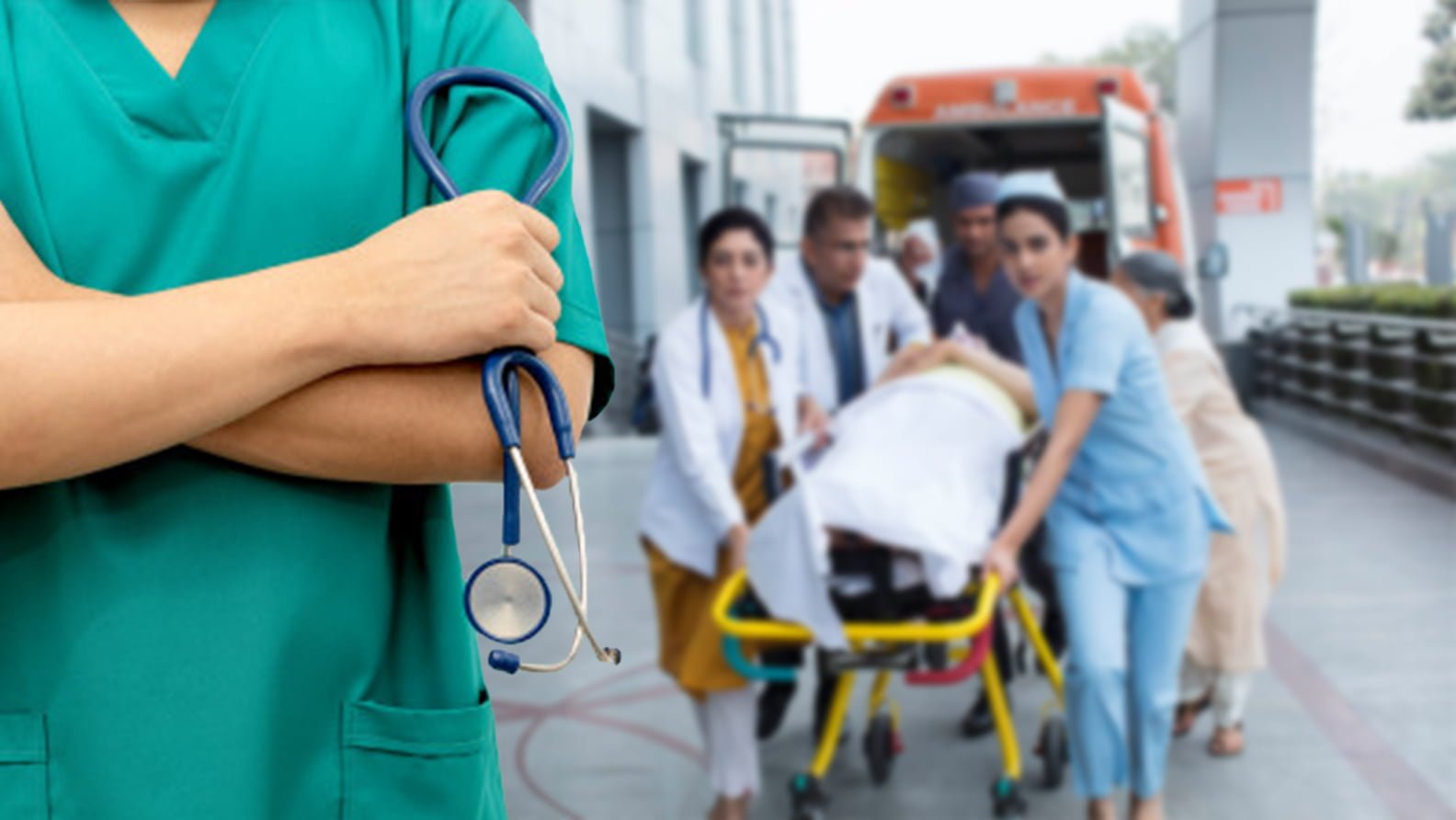
Overview
Our highly trained critical care intensivists treat this department’s most severely ill and injured persons. Sahyadri Hospital has specialists who care for patients undergoing major trauma or surgery. The doctors of Sahyadri Hospital look after the people who require advanced care and monitoring. The full spectrum of this department is provided by specialists and other medical experts specially trained in critical healthcare and are there at the Hospital 24×7 to serve patients.
Quick Facts To Read Under Critical Care
Condition we treat
- ARDS
- Acute liver failure
- Acute kidney injury
- Acute respiratory failure
- Cardiogenic shock
- Cerebral edema
- Congenital metabolic disorder
- Cancer-related Intensive Care
- Drug overdose
- Heart failure
- Influenza (flu)
- Intracranial hemorrhage
- Metabolic disorder
- Multiple organ failure
- Pneumonia
- Pulmonary embolism
- Respiratory (Lung) Failure
- Ruptured Brain Aneurysm
- Sepsis
- Septic shock
- Shock
- Stroke
- Traumatic Brain Injury
How does the critical care unit serve patients?
It is an electronic intensive care unit designed to shorten patients’ stay days at the hospital and provide improved care. In addition to the care nurses and staff provide, you also benefit from telemedicine technology. This technology helps highly trained intensivists remotely monitor patients with complex medical syndromes and surgical problems. People may find this department beneficial in the following ways:
- It shortens their stays at the hospital
- Show improved results
- Improve the level of satisfaction
- Provide homelike care to every patient
- Reduced care cost
- Limited facility transfer
Several wings of the critical care medicine unit
- Neuro and Trauma ICU
The intensive care unit treats patients suffering from life-threatening neurological problems. This field of care covers a wide array of diseases that help treat critical diseases. Every specialist and nurse working in this department has proper knowledge and training in using neurological tools like ventilators, intensive blood pressure monitoring, and cardiac telemetry.
People with damaged nervous systems work differently depending on the area where there is a problem. For instance, some patients can have problems with their movement, and some patients can have problems remembering. So, the staff must be trained enough to gather critical information and treat it accordingly.
- ICU
This care unit looks into the specialized treatment of patients who are critically ill or acutely unwell. The specialist provides critical care to patients and life support to injured people. The patients are admitted to the ICU after getting a referral from the doctor or in the emergency ward. Sahyadri Hospital has a team of multidisciplinary doctors, nurses, and specialists trained in surgical, medical, and trauma conditions. Moreover, the department has a relatively large sterile area containing technical, specialized, and monitoring equipment for treating critically ill patients.
- CCU
Sahyadri Hospital’s critical care unit provides specialized 24×7 care to patients suffering from severe medical conditions. We focus on making the patient comfortable through our round-the-clock medical service and best practices. Also, trained specialists and staff closely monitor patients’ vital signs. If a professional notices any signs, they immediately start treatment. This care unit mainly contains patients who need constant care and attention.
However, the disease they are carrying may not be as severe as it sounds. After going through major surgery, many patients are transferred to CCU to keep a close view of the vital post-surgery signs. It can be a risk, including breathing problems, cardiac arrest, internal bleeding, etc.
- HDU
Sahyadri Hospital offers its patient service in a high-dependency unit to care for patients who require constant care and attention but whose condition is not as severe as warrants an ICU bed. These patients can’t be kept on the general care floor until the patient’s health stabilizes completely after surgery or any other medical treatment. This unit is different from the ICU because, in the ICU, the patient’s criticality is such that one patient needs one nursing care, whereas, in the HDU, one nurse is allotted to every two patients.
- Cardiac HDU
Our hospital has a specialized HDU department for patients requiring intensive observation, nursing, and treatment, which is impossible to deliver in the general ward. After undergoing cardiac treatment, the patients are closely monitored. The professionals and specialists look for critical signs, like chest pain, breathing issues, etc., to provide immediate care. When the healthcare professionals confirm that the patient is out of danger, they are shifted to the general ward.
- Isolation rooms
When the doctors at Sahyadri Hospital feel that the patient must be kept away from other patients while receiving medical care, they shift him/her to a special room called an Isolation room. This is necessary when the patient is suffering from a condition that can infect others in the room. On the other hand, it can also be because your condition makes you vulnerable to being infected by others easily.
These isolation rooms sometimes use a system of negative air pressure to prevent airborne diseases like flu or tuberculosis from escaping the room and infecting others. The machine helps by pulling in the air and filtering it before throwing it outside. On the other hand, we use positive air pressure if the person has a weak immune system and is prone to catching an infection. The system helps keep contagious diseases out of the room by filtering the air before it enters the room.
- Hemodialysis
At Sahyadri Hospital, we offer a specialized process for patients needing a dialysis machine and a special filter. This is primarily necessary to clean the blood when the kidneys cannot do it. Due to some issues with the kidney’s functionality, it can no longer remove wastes and fluid from the blood, thus requiring a dialyzer to carry on the work.
The dialyzer has two parts: one filters the blood, and the other washes the fluid. A thin membrane separates these two parts, which help filter smaller waste materials from the blood, such as creatinine, urea, extra fluid, and potassium. At the same time, protein and other essential things in the blood remain in contact.
Conditions we treat
- Lung problem
- Brain trauma
- Heart problem
- Organ failure
- Drug-resistant infection
- Blood infection
- Serious injury due to accidents
The professionals in the critical care unit are highly trained in using different equipment for different types of diseases like the following:
- Doctors may use catheters, which are flexible tubes that push fluids into the body or excrete harmful fluids.
- Intravenous tubes are used to provide fluids and medicines to patients through their veins when they cannot consume water and food by mouth.
- Patients with failed kidneys receive help from a dialysis machine, which clears wastes and filters all blood impurities. It also maintains the proper level of minerals in the blood and monitors blood flow throughout the body.
- The doctors also supplement oxygen to patients who are unable to release oxygen on their own. In such cases, oxygen therapy helps improve energy levels, quality of life, and sleep patterns.
- Our doctors also provide nutritional support by offering feeding tubes to patients. This device is directly inserted into the stomach and through the abdomen.
- The care units also contain a machine that records the patients’ conditions and displays them on a monitor for the professionals to monitor closely.
- The patients are also offered tracheostomy tubes, which act as breathing tubes. First, the doctors make surgical holes in the front of the neck and then insert them into the windpipe.
- Doctors also assist with ventilators, which absorb and release air from the lungs. This is a necessary process for people with respiratory problems.
Many machines in this department save patients’ lives and reduce the risk of infection from various diseases.
Critical Care Experts at Sahyadri Hospitals
Patient Feedback
We thank you for choosing Sahyadri Hospitals for your treatment. Your feedback is our achievement. We have taken a number of steps to ensure that the services rendered to you are fully met.
Centres of Excellence
Sahyadri Hospital Locations
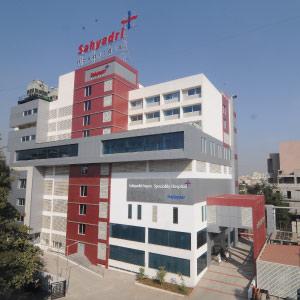
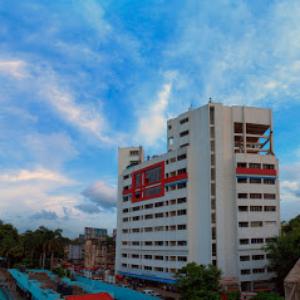

Plot No. 30-C, Erandvane, Karve Rd, Deccan Gymkhana, Pune - 411004
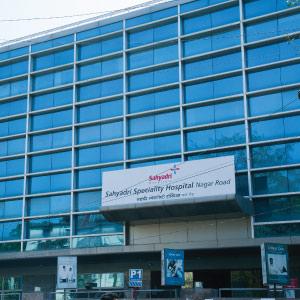

Near Hermes Heritage, Nagar Rd, Shastrinagar, Yerawada, Pune - 411006
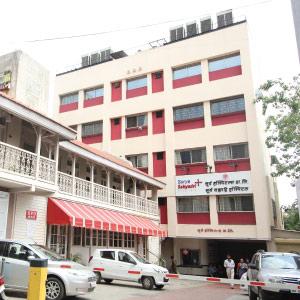
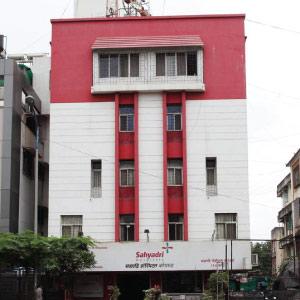

Neena Co-op. Housing Society, Plot No. 9-B, Lokmanya Colony, Kothrud, Pune - 411038
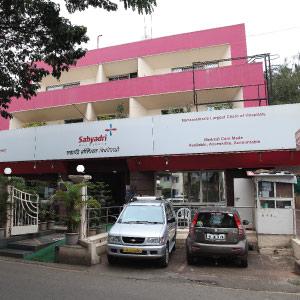

Plot No. 13 S. No. 573, Swami Vivekananda Marg, Bibwewadi, Pune - 411037
